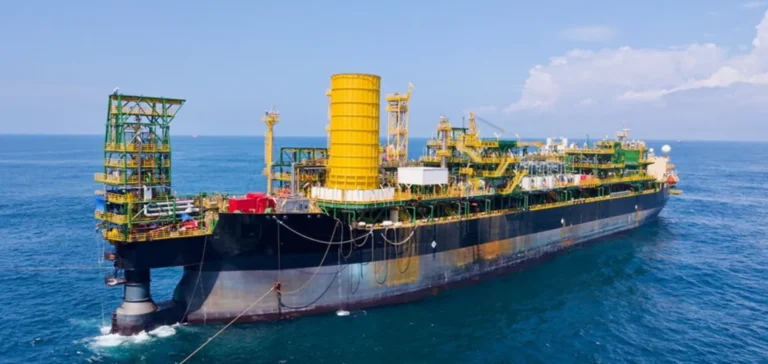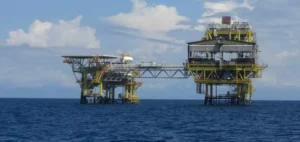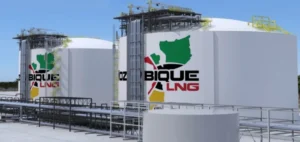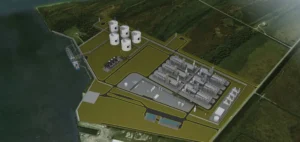The President of the Republic of Côte d’Ivoire, Alassane Ouattara, met with Claudio Descalzi, Chief Executive Officer of the Italian company Eni, to discuss the advancement of the main energy projects carried out by the company in the country, notably the offshore Baleine project.
Planned increase in national gas capacity
The Baleine project, operational in its first two phases, currently has a daily production of 62,000 barrels of oil and 75 million cubic feet of natural gas. The third phase should allow these capacities to increase, bringing daily production to 150,000 barrels of oil and 200 million cubic feet of natural gas. Exploitation of the field, located offshore Côte d’Ivoire, has an estimated gas production plateau duration of about 12 years. The entirety of the gas production is exclusively intended for the Ivorian domestic market, with the objective of strengthening the country’s energy autonomy and supporting local industrial development.
Côte d’Ivoire’s energy potential was confirmed by the recent discovery in March 2024 of the offshore Calao field. According to estimates, once fully developed, this discovery could increase daily gas production to nearly 500 million cubic feet, potentially positioning the country as a future regional energy exporter.
Continued exploration and diversification of resources
In this perspective, Eni continues its investment in Côte d’Ivoire, signing in November 2024 four new exploration contracts in the Ivorian offshore basin. This approach demonstrates the long-term interest in the country and its energy resources, while aiming at greater diversification of the Italian group’s activities there.
Alongside these oil and gas operations, the meeting between President Ouattara and Claudio Descalzi addressed the development of local agricultural supply chains aimed at feeding Eni’s biorefining activities. Recently, the Italian company exported its first shipment of Hevea oil to its biorefinery facilities operated by Enilive. In May, Eni signed a memorandum of understanding with the Ivorian Ministry of Agriculture aimed at further structuring this agricultural sector within the framework of a circular economy.
Complementary social and environmental programmes
In addition, several environmental and social initiatives led by Eni in Côte d’Ivoire were discussed. The Clean Cooking programme, intended to provide clean cooking solutions to vulnerable populations, already benefits 700,000 people in the country, with the stated ambition of reaching 2.5 million individuals by 2030. Another project aims at preserving and restoring 14 classified forests, directly benefiting over 300,000 residents.
Present in Côte d’Ivoire since 2015, Eni has made the country’s two largest oil and gas discoveries with the Baleine and Calao fields. The Italian group also continues several socio-economic projects related to education, health and local economic diversification.






















